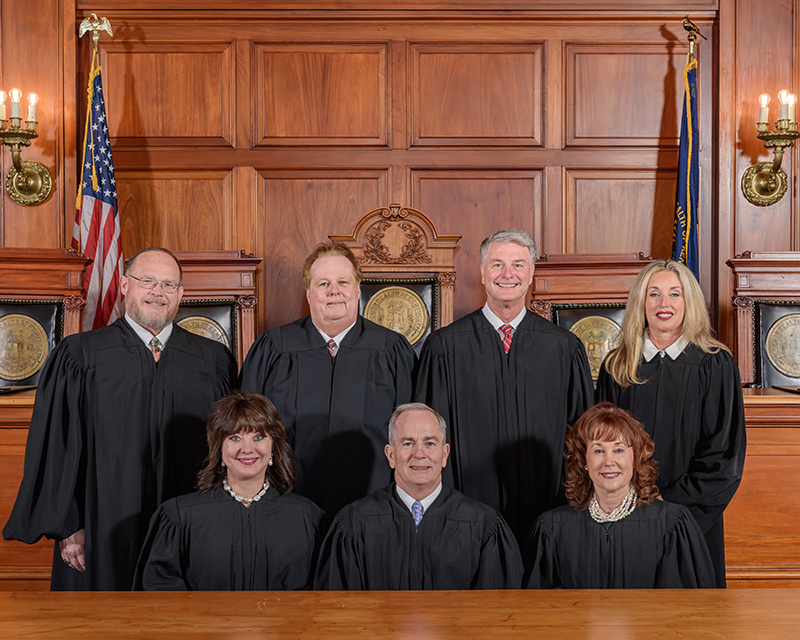The Kentucky Supreme Court in a 6-1 decision Thursday struck down a new law allowing “random” changes of venue in lawsuits challenging state laws and decisions.
In its order, the state’s highest court said Senate Bill 126 violated the separation of powers among state government branches. The court said the law, among other unconstitutional features, granted “unchecked power” to litigants seeking randomized court venue changes, in effect allowing litigants to remove a judge in a way that circumvents the judicial branch’s established judge recusal process.

The GOP-controlled state legislature passed SB 126 over the veto of Democratic Gov. Andy Beshear in the final days of this year’s legislative session. The law allows litigants and the attorney general as an intervening defendant to file a motion to direct the clerk of the Kentucky Supreme Court to pick a new circuit court at random in any of Kentucky’s 120 counties to hear the case. Theoretically, the law could have moved a lawsuit filed in Paducah hundreds of miles to an Eastern Kentucky courtroom.
The state’s “skill-based” gaming industry had challenged SB 126 in April to stop Republican Attorney General Daniel Cameron from randomly moving its lawsuit from the courtroom of Franklin Circuit Court Judge Phillip Shepherd, who has been the target of GOP criticism for past decisions. The industry had challenged a separate law banning such “skill-based” gaming machines often found in gas stations and convenience stores.
During oral arguments before the Kentucky Supreme Court in August, J. Guthrie True, representing the gaming industry, said the law was an “intolerable” overreach into the powers of the judicial branch to determine how and when a court case should be transferred.
True, in an interview with the Lantern on Thursday after the decision came down, said the ruling’s “real winners” are Kentuckians who, at times, may need to challenge their state government in court.
“They’re not going to be subject to some arbitrary statute that may require them to be burdened with litigating their claims far from home or far from a jurisdiction that is rationally related to their claims,” True said. “We really view this as a victory for all Kentuckians, particularly the little folks who need to be able to challenge the actions of a big government.”
Attorneys for Cameron had defended the law’s constitutionality before the Supreme Court, arguing the law was needed to allow litigants the opportunity to avoid judges believed to be biased.
The Supreme Court in its order refuted those arguments, stating that processes addressing perceived bias, such as judges’ ability to recuse themselves from a case, already exist. The Supreme Court also stated SB 126 doesn’t require a showing of bias and doesn’t address how to solve the issue of bias.
“The Attorney General has failed to show that S.B. 126 was enacted out of absolute necessity or was even necessary at all,” the order stated.
Shellie May, a spokesperson for Cameron’s office, in a statement said the office was “disappointed” by the ruling.
“The legislature has always had broad authority to decide where lawsuits should be heard,” May said. “Today’s opinion backtracks on that established principle and diminishes the power of the people’s branch of government.”
Sen. Jason Howell, R-Murray, the primary sponsor of SB 126, in a statement provided through a spokesperson said he was disappointed in the ruling.
“While it’s unfortunate that Kentuckians will have to contend with litigation under these constraints, I’m confident the General Assembly will continue to enact public policy for the benefit of all residents,” Howell said.
True said he hopes the state legislature in the future will “leave alone” the issue of court venue and lawsuit transfers, arguing the established rules and process work for addressing perceived bias in a courtroom.
“The lawyers and the judges have been able to address this situation for decades of potential bias,” True said. “I just don’t see the need for the General Assembly to continue to be involved.”
Justice Robert Conley was the only justice to dissent in the case, agreeing with the rest of the justices that SB 126 violated separation of powers among government branches because the law directed the clerk of the Kentucky Supreme Court, who is solely and only under the authority of the court, to transfer a case.
But Conley argued the law could be allowed to stand if viewed as the state legislature allowing the Kentucky Supreme Court the opportunity to create new rules for court venue transfers for these specific cases.
“S.B. 126 is new and it is different from what the judiciary is used to. I deem it unwise, imprudent, inefficient, and inexpedient,” Conley wrote in his dissent. “But I cannot say it is unconstitutional.”
This article is republished under a Creative Commons license from Kentucky Lantern, which is part of States Newsroom, a network of news bureaus supported by grants and a coalition of donors as a 501c(3) public charity. Kentucky Lantern maintains editorial independence. Contact Editor Jamie Lucke for questions: info@kentuckylantern.com. Follow Kentucky Lantern on Facebook and Twitter.






